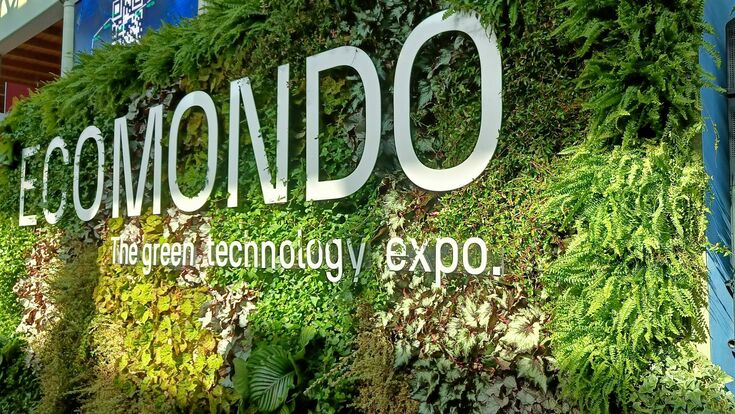Ecomondo 2024 : A growing hub for ecological transition

Attendance at Ecomondo 2024 surged, underscoring the event’s central role in advancing ecological transition. The Paper District in Pavilion B2 highlighted key innovations in sustainable paper production and recycling, showcasing solutions to reduce environmental impact through recycled materials and low-impact processes.
The event saw vibrant exchanges as professionals, innovators, and companies connected over shared goals of innovation and sustainability. International collaboration was exemplified by a new agreement between Ecomondo and the Iraqi Federation of Industries, facilitated by UNIDO ITPO Italy. This partnership, alongside delegations from Africa, Latin America, and Asia, reinforces Ecomondo’s position as a global platform for sustainable development.
Bio-based industry for a sustainable mediterranean
On Ecomondo’s second day, a workshop on bio-based industries explored their role in sustainable rural economies. Marta Gomez San Juan of FAO shared case studies, like bio-based plastics from agave in Mexico, “Turning Fish into Fashion” in Kenya and FAO’s Bioeconomy Toolbox to support sustainable bioeconomy strategies. Serenella Sala of the European Commission emphasised the impact of bio-based chemicals on EU Green Deal goals, while Derek Nighbor of Canada’s Forest Products Association highlighted sustainable forestry’s role in economic growth and biodiversity. The session underscored the need for unified strategies to drive bioeconomy progress worldwide.
ISWA on #RoadtoCOP29
In a strategic session at Ecomondo, the International Solid Waste Association (ISWA) presented integrated waste management as a major opportunity to curb up to 20% of global GHG emissions. ISWA aims to drive COP29 attendees to incorporate waste strategies into Nationally Determined Contributions (NDCs), advocating waste treatment as a powerful climate action.
ESG CEO Summit: Sustainability meets competitiveness
The ESG CEO Summit addressed the balance between sustainable transition and business competitiveness. Carlo Cici of The European House-Ambrosetti stressed the urgency of accelerating sustainable development, calling for simplified access to green finance and targeted investments to support SMEs. The discussion reinforced that aligning regulatory compliance with competitive investments is crucial for Europe’s future.


